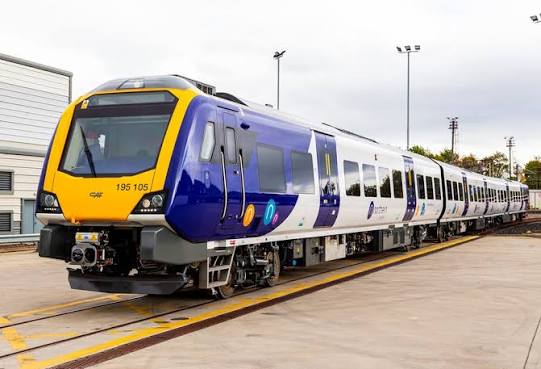Introduction
In the United Kingdom, railways have long been more than just a way to get from one place to another—they are a vital part of daily life, regional identity, and economic growth. For the people of Northern England, Northern Rail represents this lifeline. Operating hundreds of routes that connect cities, towns, and rural communities, Northern Rail plays a crucial role in shaping mobility and opportunity in the region.
But Northern Rail’s story is not without challenges. Over the years, it has been praised for its role in connecting communities, while also facing criticism for delays, cancellations, and aging infrastructure. Today, the company continues to adapt, balancing passenger needs with modern demands for sustainability and efficiency.
—
What Is Northern Rail?
Northern Rail, commonly referred to as simply Northern, is one of the largest train operators in the UK. It runs passenger services across Northern England, covering areas such as Greater Manchester, Yorkshire, Merseyside, Lancashire, and the North East.
With more than 500 stations served, Northern Rail covers both major cities like Leeds, Manchester, and Newcastle, as well as smaller rural stops that might otherwise be cut off from the national network. Its mission is not just transportation, but providing access to jobs, education, and culture across the North.
—
A Brief History of Northern Rail
The company began operating in 2004 under a private franchise agreement, taking over many regional routes. For years, it was run by private operators, but performance issues—particularly around punctuality and overcrowding—led to growing public frustration.
In 2020, the UK government stepped in and brought Northern Rail under public ownership through the Department for Transport’s Operator of Last Resort. This move was seen as a reset, giving the company a chance to improve services without the same commercial pressures of private ownership.
Since then, Northern has focused on modernising trains, improving timetables, and rebuilding trust with passengers.
—
Why Northern Rail Matters
Northern Rail is not just a transport provider—it is an enabler of regional growth. The North of England relies heavily on rail to connect its workforce to city centres, universities, and hospitals. For many communities, buses and cars are not always practical options, making trains essential.
Key reasons Northern Rail matters include:
Economic Growth: Reliable rail services connect people to jobs and businesses across the region.
Education Access: Students depend on trains to reach universities in cities like Leeds, Manchester, and Sheffield.
Tourism and Culture: Northern routes open access to destinations like the Lake District, York, and coastal towns.
Environmental Benefits: Rail travel is a more sustainable option than cars, supporting the UK’s climate goals.
—
Challenges Faced by Northern Rail
Despite its importance, Northern Rail has faced consistent challenges:
Delays and Cancellations: Timetable disruptions have been a major source of passenger frustration.
Overcrowding: Busy commuter routes often see trains filled beyond capacity during peak hours.
Aging Infrastructure: Some of the rail lines and trains in the North have not kept pace with modern demand.
Public Trust: Years of underperformance damaged Northern’s reputation, making recovery an uphill battle.
Addressing these issues is central to the company’s ongoing efforts to rebuild confidence.
—
Steps Toward Improvement
Since coming under public ownership, Northern Rail has made progress in several areas:
New Trains: Introduction of modern, more comfortable carriages with better accessibility.
Service Reliability: Gradual improvements in punctuality, though challenges remain.
Digital Innovation: Mobile ticketing, real-time service updates, and smart travel planning tools.
Sustainability Initiatives: Efforts to reduce carbon emissions and explore greener train technology.
These improvements are part of a long-term plan to make Northern Rail a service that passengers can depend on daily.
—
Northern Rail and the Future of Northern England
The future of Northern Rail is closely linked to the broader idea of “levelling up” the North. As the UK government aims to reduce inequalities between London, the South, and Northern regions, reliable transport is essential.
Plans for electrification of key routes, more frequent services, and modern infrastructure projects like the Northern Powerhouse Rail vision could transform the region’s connectivity. Northern Rail will play a central role in this transformation, ensuring that communities benefit from investment and progress.
—
Passenger Voices: The Human Side of Rail
Behind every timetable is a story. For daily commuters, Northern Rail is the difference between getting to work on time or missing a shift. For students, it is a lifeline to education. For families, it means access to cultural and leisure destinations.
While statistics often dominate discussions about rail performance, the true measure of Northern Rail’s success lies in the experience of the people who depend on it. Improvements in comfort, reliability, and affordability directly impact quality of life across Northern England.
—
Conclusion
Northern Rail is more than a transport service—it is a vital thread in the fabric of Northern England. While the company has faced challenges with delays, infrastructure, and reputation, its importance cannot be overstated.
With new investment, modernisation, and public ownership, Northern Rail has a chance to redefine itself as a trusted, sustainable, and efficient railway. For millions of passengers, its success will mean more than convenience—it will mean connection, opportunity, and progress for the region.
—
📌 This article belongs to the Journal community on Vocal Media, since it focuses on current affairs, public services, and social impact.
—
Would you like me to also create a shorter news-style version (400–500 words) that focuses just on Northern Rail’s challenges and improvements, for quicker publishing alongside this feature-length piece?
